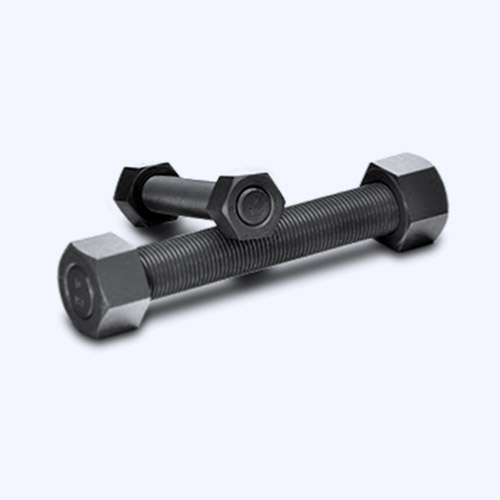Aug . 30, 2024 15:35 Back to list
expansion screw bolts
Understanding Expansion Screw Bolts Applications and Benefits
Expansion screw bolts are essential components in construction and engineering applications, designed to secure materials in a variety of settings. Their unique mechanism allows for strong anchoring in materials such as concrete, masonry, and stone, making them favorable for both light and heavy-duty applications. In this article, we will explore the functionality, types, and advantages of expansion screw bolts.
How Expansion Screw Bolts Work
Expansion screw bolts operate through a simple yet effective principle. They consist of a bolt, a nesting expansion sleeve, and a nut. When the bolt is turned, the sleeve expands outward against the sides of the hole it occupies, creating a strong mechanical bond with the substrate. This expansion is typically achieved via a conical shape that, when pulled or pushed, forces the sleeves to widen against the walls of the drilled hole. This anchoring method allows for the transfer of loads without compromising the integrity of the surrounding material.
Types of Expansion Screw Bolts
There are several types of expansion screw bolts, each designed for specific applications
1. Wedge Anchors Commonly used in concrete applications, wedge anchors provide a high load-bearing capacity. They feature a wedge-shaped end that digs into the concrete as the bolt is tightened.
2. Sleeve Anchors More versatile than wedge anchors, sleeve anchors can be used in both concrete and masonry. The sleeve design allows for expansion against the walls of the hole, making them ideal for varied applications.
3. Drop-In Anchors These are useful for secure, flush-mounted anchoring in concrete. They are installed using a setting tool, which expands the internal mechanism against the sides of the hole.
expansion screw bolts

4. Through-Bolts Used predominantly in heavy-duty applications, through-bolts consist of a long bolt that passes through materials and is secured with a nut on the opposite side. This type allows for extensive load distribution.
Benefits of Using Expansion Screw Bolts
1. Strong Load Capacity Expansion screw bolts provide a high level of pull-out resistance, making them suitable for supporting heavy structures or equipment.
2. Versatile Applications They can be used in various materials, including concrete, brick, and stone, allowing for flexibility in installation.
3. Ease of Installation Installation typically involves drilling a hole and inserting the anchor, making the process straightforward and efficient.
4. Corrosion Resistance Many expansion screw bolts are available in corrosion-resistant materials, such as stainless steel or galvanized finishes, ensuring longevity even in harsh environments.
5. Reusability Certain types of expansion screws, like sleeve anchors, can be removed and reused, which is economical and practical for temporary installations.
Conclusion
In conclusion, expansion screw bolts are vital for ensuring the stability and safety of structures across various projects. Their ability to provide strong anchoring solutions in different substrates, combined with their ease of installation and load capacity, makes them a preferred choice for engineers and builders alike. Whether used in construction, maintenance, or mechanical applications, understanding the fundamental features and benefits of expansion screw bolts can lead to better results and enhanced structural integrity.


